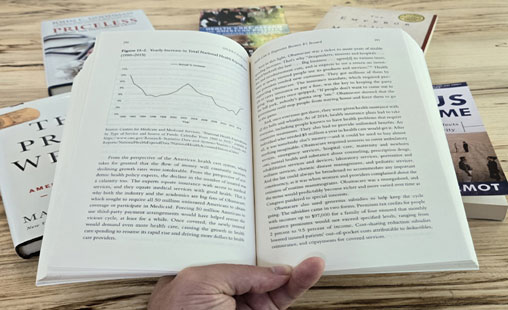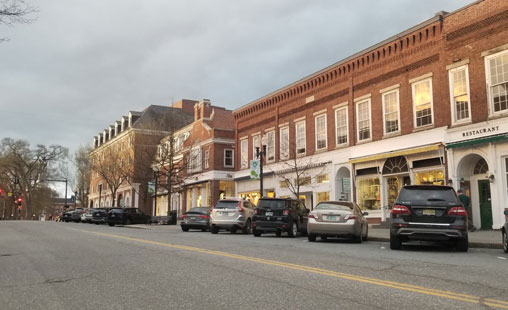Summer Fellowship in Health Policy
Program dates are July 7, 2025 to August 1, 2025Our Summer Fellowship in Health Policy offers a unique opportunity to study health policy while building practical skills in applied research and writing, and building a portfolio of work. The fellowship is open to college students and recent graduates, as well as self-starters and autodidacts who are forging their own educational path in life. We aim to propel students to careers in healthcare and health policy as researchers, analysts, and advocates.
The 4-week fellowship is full-time and in-person. This year's fellowship will run from July 7, 2025 to August 1, 2025. The program size is capped at 12 students per cohort. Interested individuals are invited to Apply Now for a spot in the inaugural cohort for this brand new program.
An Opportunity for Focused Study


 Over the course of the fellowship, we will explore and integrate material from health policy, political economy, the history of medicine, the medical humanities, and other disciplines. The fellowship is reading-intensive and balances "Great Books" type material which raise important questions in health policy with contemporary sources that show the current state of the field.
Over the course of the fellowship, we will explore and integrate material from health policy, political economy, the history of medicine, the medical humanities, and other disciplines. The fellowship is reading-intensive and balances "Great Books" type material which raise important questions in health policy with contemporary sources that show the current state of the field.
Fellows will learn from a range of thinkers, not just current free-market figures. For instance, in the history of medicine students study Hippocrates, Galen, Vesalius, and others. In health policy, students read Arrow, Fuchs, Pauly, Goodman, Berwick, Gawande, Baicker, and others. In political economy, students read Locke, Smith, Say, Bastiat, Hayek, Mises, Rand, Buchanan, and others. In the medical humanities, students read Tolstoy, Bulgakov, Ibsen, Lewis, Maupassant, and others.
Students
The fellowship designed primarily for current college students and recent graduates, however we enthusiastically welcome applications from individuals from all backgrounds, including non-traditional backgrounds. High school graduates who are looking for an alternative to college or a stimulating gap year experience, as well as older professionals (with or without a degree) who are looking to accelerate their career or make a career change are all welcome to apply, too. The only age requirement is that students are at least 18 years old.
In certain circumstances, individuals from outside the United States might be eligible to participate in our program. Because the fellowship is short in duration, not designed for degree credit, and because there is no paid work involved, it may be possible for non-U.S. residents to do our program without needing to obtain a student visa. However, please note that it is the responsibility of prospective students to seek official guidance regarding eligibility. We cannot give legal advice about visas, visa waivers, or other options regarding entry into the United States. We also cannot sponsor people for visas.
Location


The fellowship takes place in Hanover, New Hampshire, a college town that is about a two-hour drive northwest of Boston, Massachusetts. Our learning space is located in downtown Hanover, steps away from the Dartmouth College campus. Our program is not formally affiliated with Dartmouth, but there are many excellent public Dartmouth talks and events that you can attend, and opportunities to become part of the community.
Cost
Students accepted into the fellowship receive free tuition and housing for the duration of the program. Other normal living costs, such as most meals, are the responsibility of the student. Students also are responsible for their travel cost to New Hampshire. We are happy to give advice about what travel options are likely to be the most affordable.
The number of fellows that we can accept each year is limited by the amount of funding that we can raise. (We're working diligently to find sources of support for this program.) If you do not need us to provide housing during your fellowship, you can let us know that in your application.
Apply
The cohort for our inaugural program starting is now forming. The application deadline is March 31, 2025. Enrollment is capped, so we encourage applicants to apply early. There is no fee to apply.